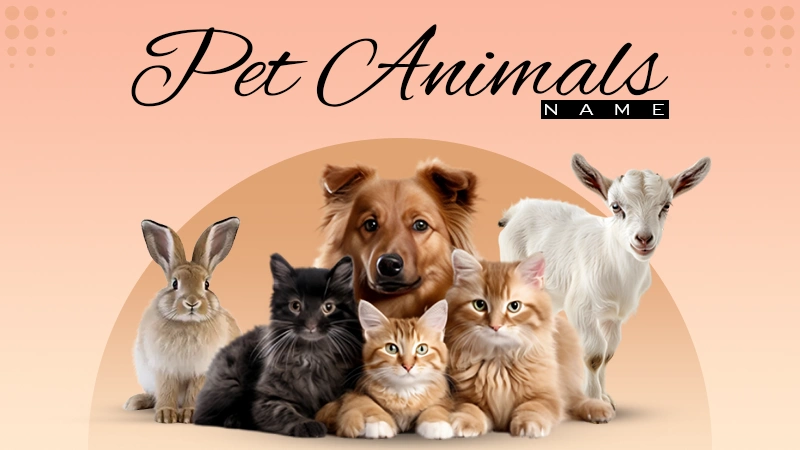
Rudyard Kipling’s “The Jungle Book” depicts the transcendental connection between humans and animals. Similarly, Elbert Einstein’s parrot and Nikolas Tesla’s black cat are some examples of great companions, and the Hachiko dog is perceived as a symbol of exceptional loyalty.
Innocent and friendly pets have become an innate part of our families. They become family members and propagate love and affection, thus linking humans and animals into a deep relationship.

While selecting a pet, myriad alternatives erupt simultaneously, with dogs and cats being prominent options.
To solve this dilemma, here is a catalog of 30 pet animal names with a brief of their pros and cons.
30 Pet Animal Names
Pets are primarily domesticated for entertainment and amity. But while adopting or buying one, confusion appears about which pet one should go with.
Here, 30 pet animal names with the pros and cons of raising them have been expounded, exhibiting a catalog of options available. This extensive account of animals will also provide an overview to the people looking for a suitable pet.
Let’s explore them one by one.
Suggested Reads: 25 Best Marine Biology Colleges Around the World
Cat
Cats are considered good companions. These small mammals are versatile, loving, and very friendly, making them a point of attraction at home. The expressive eyes, padded soft paws, and silky fur are the charming characteristics of this cute creature.
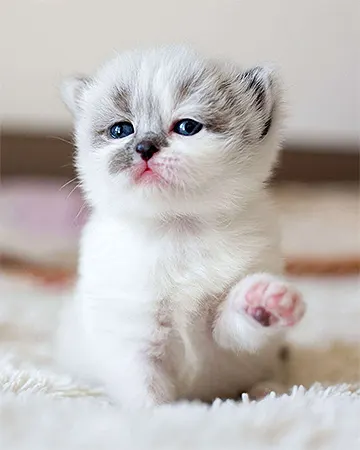
| Pros | Cons |
| Require low maintenance | Can cause trouble by scratching the home furniture and items |
| Social and cordial | Can scratch or bite people |
| Don’t acquire much space to accommodate | Some instances of people getting allergic to cats have been reported |
| Can help reduce stress, anxiety, and depression | |
Dog
Dogs, especially puppies, are among the most loved, admired, and preferred partners. These cute animals scatter innocence and love, which hooks the caregivers.

| Pros | Cons |
| Available in various breeds and color options | Can carry pests and infections |
| Requires less maintenance and vet care is easily accessible | Cleanliness issues, especially with fur-bearing breeds |
| Active companion and easily trainable | Can be aggressive at times |
| Average body size and easy-to-control | |
Hen
Hens are also opted for as pets. Their calm and fairly quiet nature and innocence make them a good choice. They are easy to buy and can be domesticated in a wider range of climatic conditions.
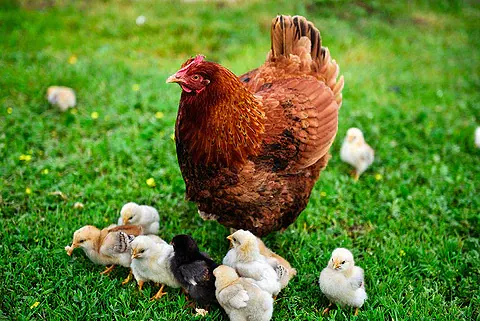
| Pros | Cons |
| Require low maintenance | Shorter lifespan of 2-3 years |
| Help remove weeds in the garden | Are prone to various diseases |
| Quite funny and entertaining | Excrement can irritate the owner |
| Eggs laid can be used | Keep making noise all day |
| Its excrement can be used as garden manure | |
Rabbit
This lovely, small-faced, round-bodied creature is perfect for those searching for a pet that is abundant in cuteness, is highly entertaining, and demands low maintenance. Its silky fur further makes it appear more adorable.
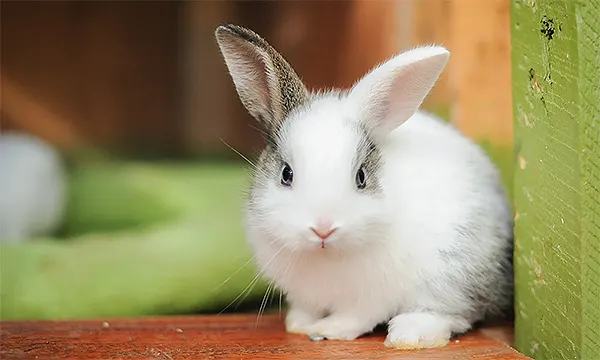
| Pros | Cons |
| Longer lifespan (10-12 years) | Destructive behavior at times; can bite home items and soft furniture |
| Social and entertaining | Predators such as cats and dogs can be found anywhere, causing a threat to their lives. Hence, requires extra safety |
| Quite, with not much food and care demands | Swift runners make it easy to escape and being small in size makes it hard to find and catch |
| Feeds on vegetable remains; can reduce domestic waste | |
Parrot
A parrot can attract people with its vibrant and colorful appearance and abundant smartness. This clever bird possesses fascinating vocal abilities, and its various breeds are easily available in the pet market.
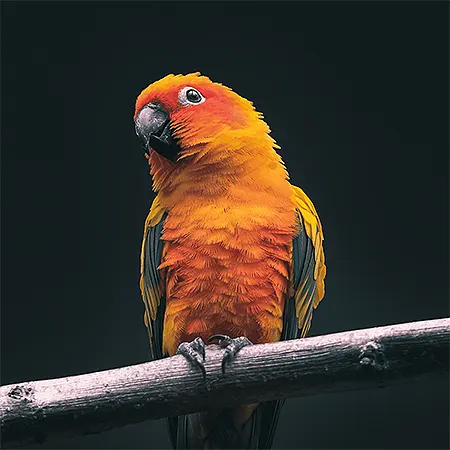
| Pros | Cons |
| Longer life span (50-60 years) | Noisy and can be interruptive as well |
| Highly intelligent | Longer lifespan, so need persistent care |
| Caring can be costly, such as expensive food, vet care, cage accessories, etc. |
Turtle
These cute creatures entertain people with slow gestures, appealing nature, and funny wobbles. Turtles are cool amphibians to keep and watch grow. These slow-walking creatures keep the people in suspense for their next move, making it a center of attraction at home.
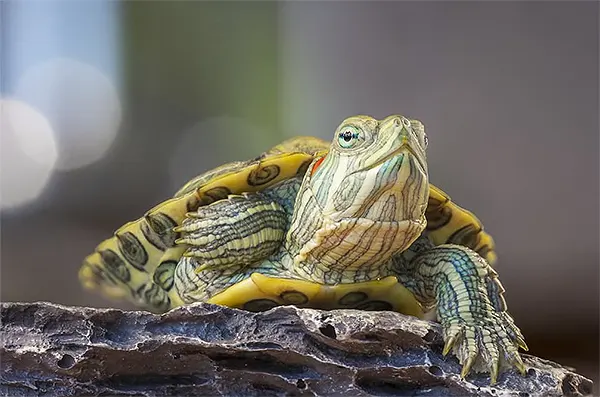
| Pros | Cons |
| Low maintenance and care costs | Longer age 50-100 years—need longer commitment |
| Feeds on vegetable remains so helps clean food waste | Can’t be trained much |
| Prone to disease |
| Can increase in size with age, causing issues in maintenance and handling |
Horse
People with a passion for strength favor keeping horses as pets. These robust animals, though they demand good care and significant space, are compassionate creatures to keep. They are highly trainable, which makes them a good option.
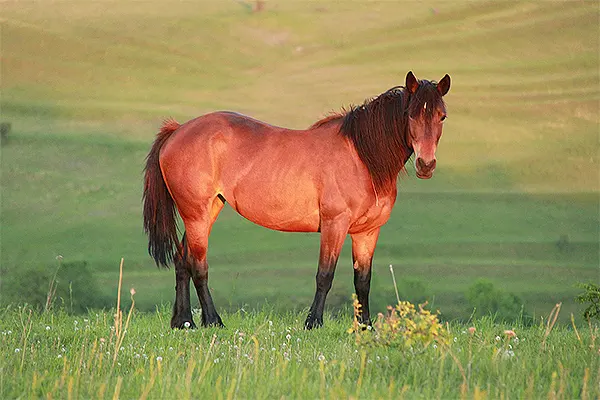
| Pros | Cons |
| Loyal animal with great companionship | High maintenance cost |
| Can be used for multiple purposes, such as sports and entertainment | Some people are allergic to horses |
| Hard to transport it to other places |
| Requiring large space to keep |
Goat
Their cordial demeanor, manageable size, and fair intelligence make them a good choice. The candid expressions further attract the people. The small and shiny fur over the body gives them a glossy and velvety appearance.
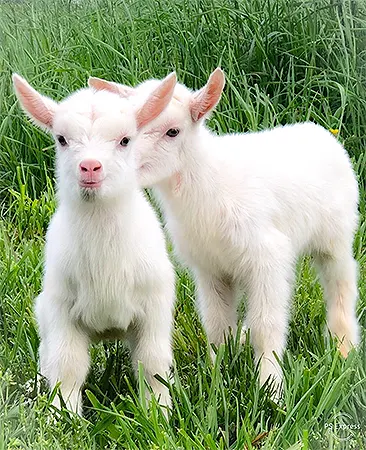
| Pros | Cons |
| Require small space | Prone to infections such as brucellosis and leptospirosis which can be transmitted to humans |
| Friendly and trainable | Need to be protected from predators such as Dogs |
| Source of milk and other products | Being a herd lover, it can’t be kept alone |
| Require regular hoof trimming |
Dove
The dove is a symbol of peace, which makes it a good choice to rear. This glossy white bird has been domesticated since ancient times and is still being reared by many families.
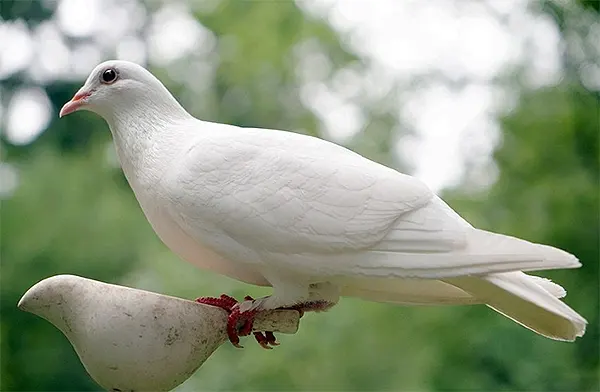
| Pros | Cons |
| Social and friendly | Their droppings can cause a mess |
| Easy to care | Prone to diseases such as psittacosis and meningitis, which can infect the caregiver |
| Sensitive to environmental changes and extreme temperatures |
Goose
Belonging to waterfowl species, goose looks similar to ducks but has certain variations in size and gait. They are revered in different parts of the world, which has a profound impact on their being raised at home.
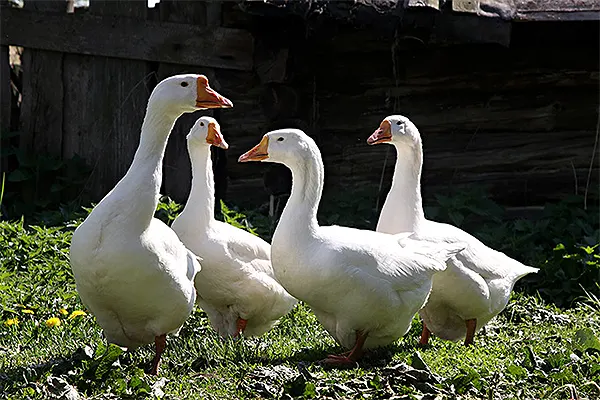
| Pros | Cons |
| Loyal, friendly, and entertaining | Noisy, especially during the breeding season |
| Can provide alerts to intruders(security purposes) | Can cause trouble with kids, so should not be left with children without supervision |
| Lay eggs regularly | |
Donkey
The Holy Bible signified the donkey as a symbol of humility and servitude, and has also referred to it as a burden-bearer. Being closely linked to Jesus in mythologies, it is perceived as an innocent animal that has a strong potential to be a good pet.
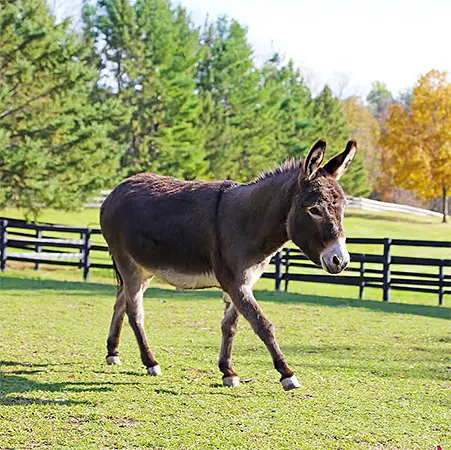
| Pros | Cons |
| Social, cordial, and gentle | Require significant space |
| Good companions and can help in domestic work | Sensitive and emotional, so can’t be left alone |
| Require constant care to stay healthy |
Pig
This round and cute animal is less popular in the pet market, but possesses immense qualities to be a good companion. Having a good memory and playful behavior, they can be a good entertainer in a family.
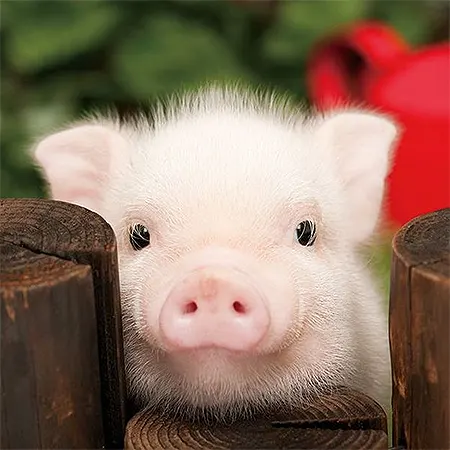
| Pros | Cons |
| Intelligent | Can be destructive if bored |
| Cuddly in bed | They don’t sweat, so require regular cooling |
| Live for 15-20 years hence providing good companionship | Large appetite, which demands diet management |
| Need a yard to accommodate; hard to keep in an apartment or house |
Pigeon
Pigeons possess a crucial place in the mythologies of different religions. It is an easily available bird and has good potential to get trained, which makes it a good choice.
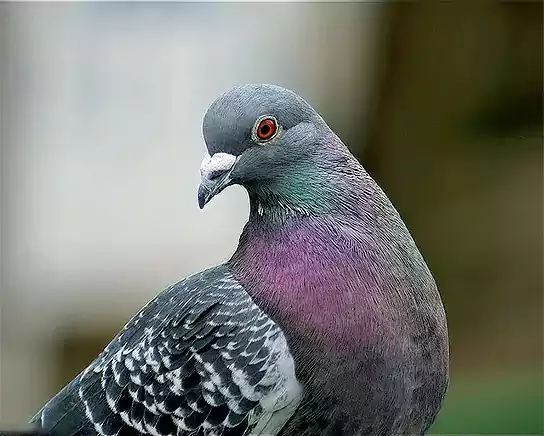
| Pros | Cons |
| Gentle, smart, and peaceful | Disease-prone can transmit diseases to humans such as psittacosis, erysipeloid, and listeriosis |
| Require less maintenance | Need daily outings from cage to stretch legs and wings |
| Can live indoors and outdoors | |
| Lives for 15–20 years under good conditions | |
Mouse
Being a critical part of folklore across the world, this small, sweet, and sensitive rodent is revered and reared by many people. This tiny creature is a less demanding and more amusing choice.
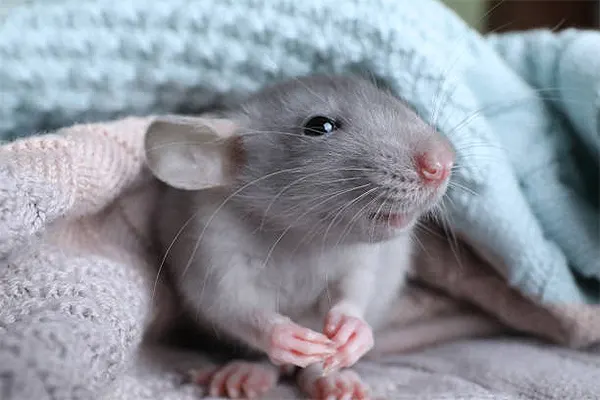
| Pros | Cons |
| Quiet and loving | Small and fragile, hence need handling with care |
| Affordable to buy and maintain | Can transmit disease to humans, such as hantavirus and leptospirosis |
| Need small space | Short lifespan: 1–3 years |
| Can be trained to greet and do other tasks | |
Cow
Seen as a symbol of holiness in many societies and religions, it is reared as a pet in many Asian and American countries. Though it requires a large space to accommodate, it has the dynamic power to mingle with humans and other animals.
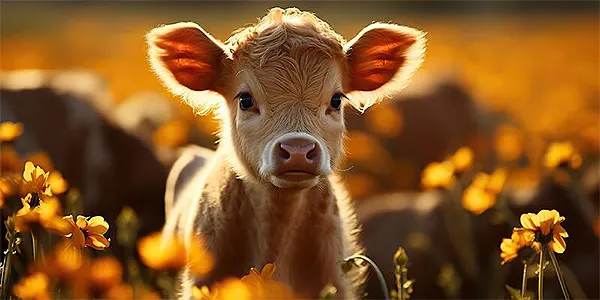
| Pros | Cons |
| Easy to care for | Require large living space |
| Social and peaceful | The disease can be transmitted to humans, such as Brucellosis, Ringworm, and Salmonellosis. |
| Provides milk and other food products | |
Chameleon
The “King of camouflage” is also on the list of pets. This small and cute animal from the lizard family can playfully entertain your family, without demanding much space or food.
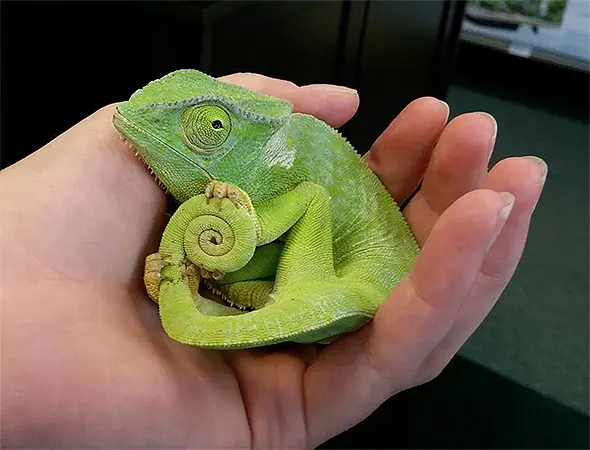
| Pros | Cons |
| Affectionate in nature and easy to handle | Prefer solitary; don’t like much handling and playing with |
| Require less space | Become aggressive if handled frequently |
| A calm and quiet | Demands extensive care |
| Can transmit diseases to humans, such as salmonella |
Hamster
Another good option from the rodent family is a hamster. It is much prettier and adorable than a mouse, and its engrossing activities make it a charming element at home.
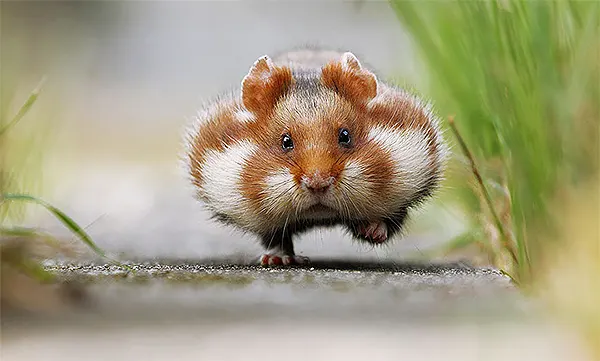
| Pros | Cons |
| Require low maintenance | Nocturnal behavior; can disturb at night |
| Demands low space | Can escape from the cage and will be hard to catch |
| Intelligent and trainable to a fair extent | |
Goldfish
Goldfish are the most preferred aquatic animal as they are easily available and cost-effective. Those searching for a less demanding option can go with it. Many societies link athletic value to keeping it as a pet.
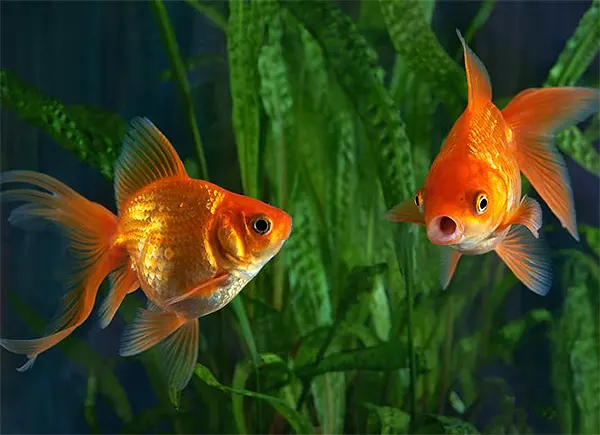
| Pros | Cons |
| Easy to care | Requires a large tank and powerful filtration system to rear multiple fishes |
| Long lifespan: 5-10 years | Sensitive to temperature and environment |
| Some goldfish grow large, thus requiring extra maintenance |
| Sensitive and can be prone to diseases like bladder disorder |
Iguana
It is considered one of the best lizard breeds for domestication. Although opted for by a few families, Iguanas are fairly larger than other lizard species and also have significant feeding and housing requirements.
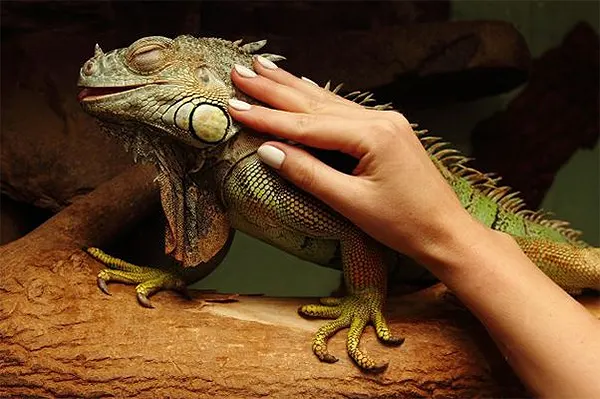
| Pros | Cons |
| Live for over 20 years | High care and maintenance |
| Feeds on leaves, vegetables fruits, and flowers | Can be scary for children |
| Quite peaceful and friendly | May become aggressive if not handled carefully |
Guinea pig
Also called the cavy or domestic cavy, the Guinea Pig belongs to the rodent category, but its adorable face, round body, and small limbs make it look appealing and attractive. When fostered, it can be a good entertainer for the family.
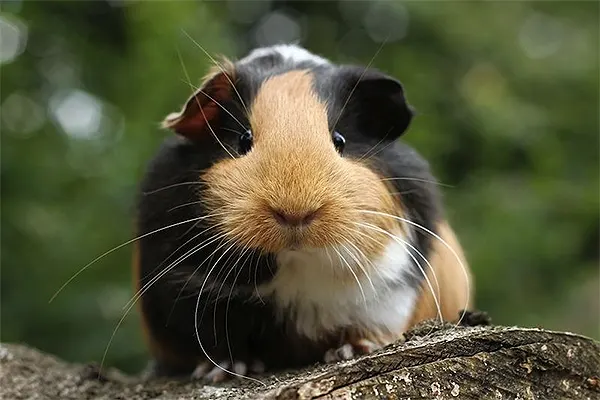
| Pros | Cons |
| Friendly and entertaining | Need constant interaction |
| Demands low maintenance | Spend a lot of time chewing, which can be messy |
| Require small spaces | |
| Has simple diet | |
Macaw
Macaw is native to the American continent, which makes it a scarce option in the pet market. Its colorful feather adds sparkles, and a life span of about 100 years gives a long companionship.
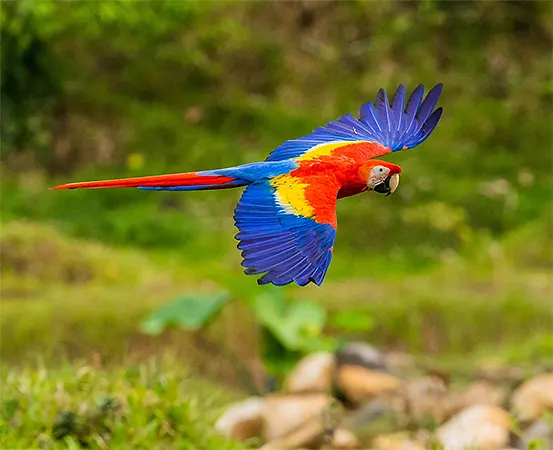
| Pros | Cons |
| Intelligent and playful bird | Require regular maintenance and attention |
| Can live up to 100 years | Not a good choice to keep it in an apartment or small house |
| Can be noisy at times due to loud calls |
Hedgehog
This small, spiny mammal has a cute face and innocent gestures. Although Hedgehogs are rare to find, they are opted for by a few selective families across the world because of the spins on their backs.
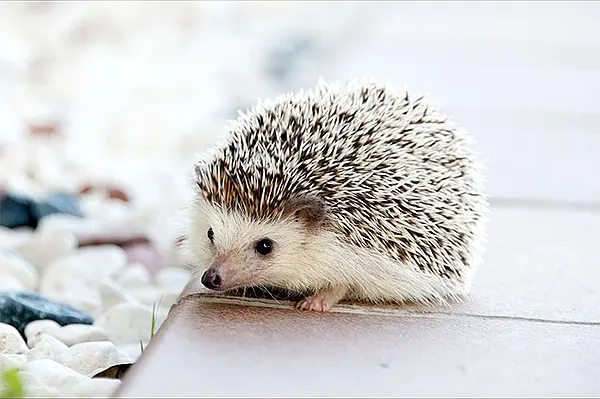
| Pros | Cons |
| Social and playful | Quills or spikes can cause issues in handling it |
| Require less space to accommodate | Hard to clean and maintain |
| Less expensive to buy and maintain | |
Turkey
Turkey, a big, bulky, shiny feathered bird, is kept as a pet by many families in Gulf countries. It raises its feathers to dance during the spring season, which captivates people’s attention.

| Pros | Cons |
| Friendly, docile and entertaining bird | Need more space |
| Require less maintenance | Being a herd animal, can’t be kept alone |
| Fully grown turkey requires low-maintenance | |
Cockatoo
Some species of this bird can be reared as pets, such as the Moluccan cockatoo. Its attractive crest of feathers on the head, which it raises and lowers, makes it more attractive. Although it appears like a parrot, its distinctive characteristics label it a good choice.
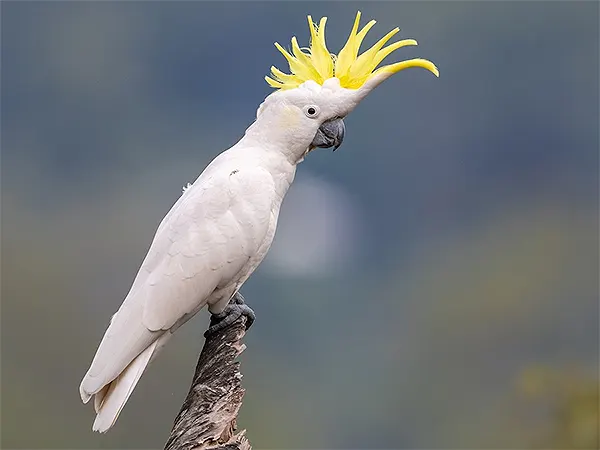
| Pros | Cons |
| Long lifespan of around 50 years | Screams can be disturbing |
| Loyal and intelligent birds | Expensive to buy |
| Require constant maintenance |
Duck
The round-headed, silky-feathered birds are good companions of humans. These jolly birds keep the owners engaged in their comely activities. Seeing them waddling in the house can be relaxing and watching them swim in a row will entice the people.
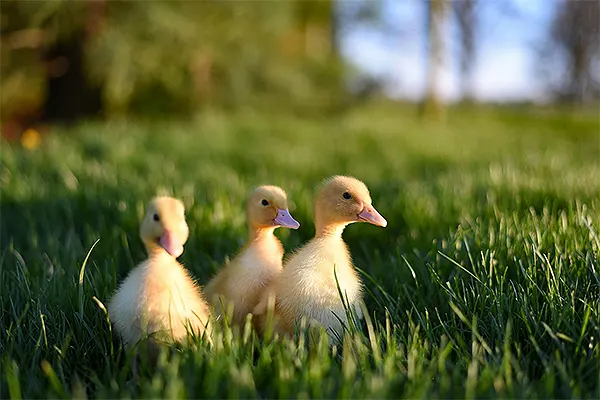
| Pros | Cons |
| Pest and weed control as ducks feed on insects and weeds | Can spread disease, eg. avian flu |
| Lifespan of 10–15 years | Not suited for indoor, need outdoor accommodation |
| Duck manure can be used in garden | Can scream loudly at times |
Skunk
Being native to North America, they are rare animals and hence raised by few families. These friendly mammals are very playful and cuddly. Its long tail has strong and thick fur, which makes it more adorable.
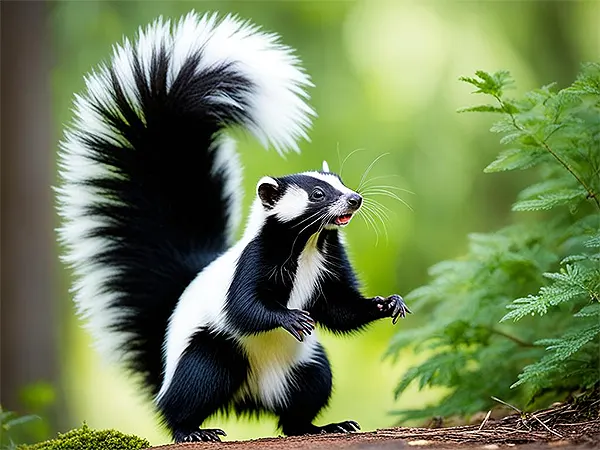
| Pros | Cons |
| Playful and affectionate | Causes disturbance when left alone |
| Can be trained to use the litter box | Can carry diseases such as rabies and leptospirosis |
| Release fluid with a pungent smell from the anal glands |
Canary
It is a finch bird that is further categorized into domestic and wild breeds. Named after the Canary Islands of Spain, these small songbirds entice many people and are entertaining items at home.
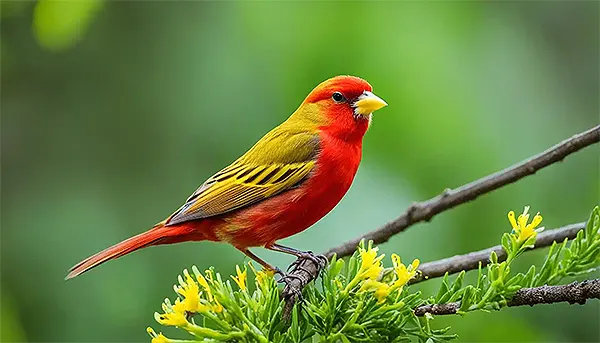
| Pros | Cons |
| Small sizes make it easy to handle them | Need a selective diet with fewer seeds |
| Beautiful appearance and voice | Should be housed singly in a space-sufficient cage |
| Requires lower maintenance than other similar birds, such as hookbill | |
Capybara
These sweet and entertaining fellows are native to South America and are also called Giant Guinea Pigs. With an average weight of 170 pounds, they are the heaviest rodents and a good pet option.
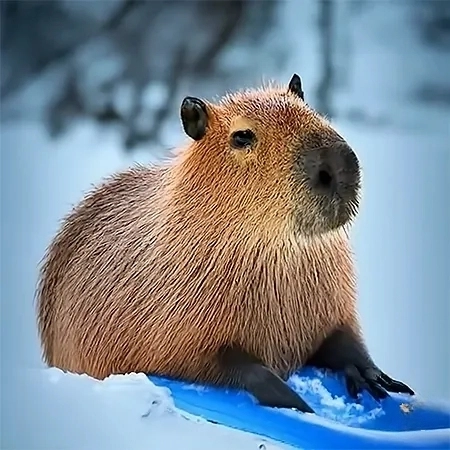
| Pros | Cons |
| Friendly, social, and entertaining | Has unique needs – such as demands a lot of water |
| Low or no odor at all | If irritated, can bite seriously |
| Life expectancy 8 -10 years | |
Camel
Called the ship of the desert, it is reared in a few countries, especially desert areas such as Gulf countries and some Middle Eastern nations. They are huge but loyal animals with calm and loving behavior.
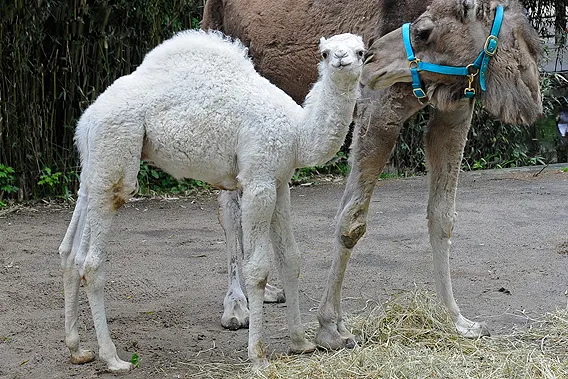
| Pros | Cons |
| Loyal and intelligent | Require large space for domesticating and grazing |
| Highly trainable | Kept only in warmer areas |
| Require less maintenance | lifespan of 50 years, hence requires a long-term relationship |
| Its excrement can be used as manure | |
Snake
Snakes are usually seen as dangerous animals having a constant offensive mood. However, some species are conducive to being kept as pets, that too under the forest regulations of the area.
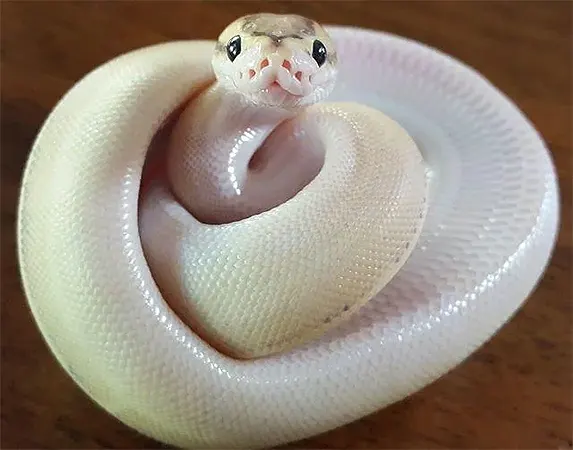
| Pros | Cons |
| Low maintenance | Few species are not good to rear at home |
| Quite and docile | Terrarium can be costly |
| Require a cautious approach to handle |
The animals explained above are potent alternatives to being fostered. However, it is advisable to have a holistic analysis of these options before arriving at a conclusion.
Now, let’s go through a detailed chart having pet animal names corresponding to their phonetical details.
Pet Animal Name Chart
Pet animals’ names are usually pronounced in English. To facilitate people in understanding their names and pronouncing them correctly, here is a pet animal name chart with pet animal names in English and the phonetic elements of the names.
| S No. | Pet Name English | Phonetic |
| 1 | Cat | /kæt/ |
| 2 | Dog | /d/ /ɔ/ /g/ |
| 3 | Axolotl | /ˈæk.sə.lɑː.t̬əl/ |
| 4 | Hen | /h/e/n/ |
| 5 | Rabbit | /ˈræbɪt/ |
| 6 | Parrot | /pɛrət/ |
| 7 | Turtle | /ˈtɝː.t̬əl/ |
| 8 | Horse | /hɔːrs/ |
| 9 | Goat | /ɡəʊt/ |
| 10 | Dove | /duhv/ |
| 11 | Goose | /ɡuːs/ |
| 12 | Donkey | /ˈdɒŋki/ |
| 13 | Pig | /ˈpɪg/ |
| 14 | Pigeon | /ˈpɪdʒ.ən/ |
| 15 | Mouse | /maʊs/ |
| 16 | Cow | /ˈkaʊ/ |
| 17 | Chameleon | /kəˈmiːliən/ |
| 18 | Hamster | /ˈhæmstər/ |
| 19 | Goldfish | /ˈɡəʊldfɪʃ/ |
| 20 | Guinea pig | /ˈɡɪni pɪɡ/ |
| 21 | Macaw | /məˈkɔː/ |
| 22 | Hedgehog | /ˈhedʒhɔːɡ/ |
| 23 | Turkey | /ˈtɜːrki/ |
| 24 | Cockatoo | /ˈkɑːkətuː/ |
| 25 | Duck | /dʌk/ |
| 26 | Skunk | /skʌŋk/ |
| 27 | Canary | /kəˈneri/ |
| 28 | Capybara | /ˌkæpiˈbɑːrə/ |
| 29 | Camel | /ˈkæml/ |
| 30 | Snake | /sneɪk/ |
| 31 | Ferret | /ˈfer.ət/ |
| 32 | Budgie | /ˈbʌdʒ.i/ |
| 33 | Hermit crab | /ˈhɝː.mɪt/ /kræb/ |
| 34 | Finches | /fɪntʃ/ |
| 35 | Guppy fish | /ˈɡʌp.i/ /fɪʃ/ |
| 36 | Wallaby | /ˈwɑː.lə.bi/ |
| 37 | Gecko | /ˈɡek.oʊ/ |
| 38 | Iguana | /ɪˈɡwɑː.nə/ |
| 39 | Gerbil | /ˈdʒɝː.bəl/ |
| 40 | Sugar Glider | /ˈʃʊɡ.ɚ ˌɡlaɪ.dɚ/ |
This chart exhibits an array of pet animal names. It is beneficial in many ways, as mentioned below:
- Facilitates communication on the pet topics.
- Provide suggestions to people about the pet options.
- Helps students learn their names in English.
- Understanding the correct pronunciation of these names.
Thus, there are a multitude of animals that can be domesticated, provided you are determined to take care of them.
Suggested Reads: What are Dead Languages and 10+ Reasons Why You Should Learn One
Conclusion
Pets and their caregivers are always in a mutual relationship, embracing an intimate connection. The aforementioned 30 pet names will give a comprehensive overview of the options available and will help in deciding the perfect animal partner.
They are beneficial in ameliorating mental health, cognitive capacities, and emotional stability. The deep affective relation has been signified by Anatole France (French Poet), who said, “Until one has loved an animal, a part of one’s soul remains unawakened.”
FAQs
Ans:The highly preferred 10 pet animal names are dog, cat, parrot, goldfish, rat, rabbit,
horse, monster, turtle, and guinea pig.
Ans:
Fish require regular care as they are sensitive to their surroundings. They need constant feeding, temperature
control of the water tank, proper vigil, and care.
Ans:The former are reared for food production or farm-related work. While the latter are fostered for entertainment and companionship.
Ans:Cats and dogs are the most popular pets. These two are easily available and convenient to maintain; they are considered good because of their size, trainability, and loving nature.